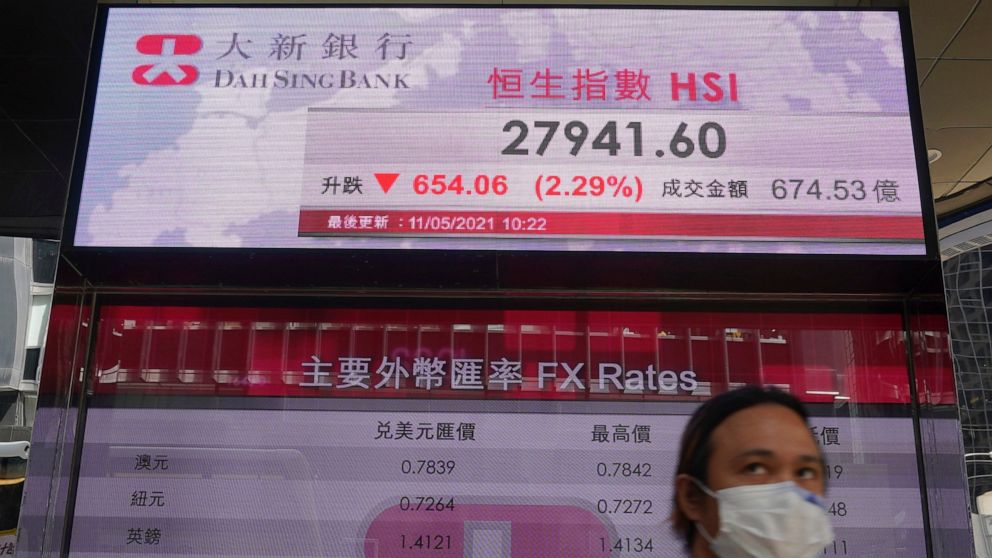Wall Street opens lower led by more drops in Big Tech stocks
Stocks closed lower on Wall Street, led by banks, industrial and health care companies
BANGKOK — Stocks closed lower on Wall Street, led by banks, industrial and health care companies. Inflation remains a growing concern among investors, which would be a major drag on the overall market if it takes hold. The S&P 500 lost 0.9% Tuesday and the Dow Jones Industrial Average gave back 1.4%. Tech stocks, which get most of their valuation from the future profits those companies are expected to earn, become less valuable if inflation decreases the value of those earnings. Commodity prices have been rising, particularly for industrial metals such as copper and platinum, as well as for energy commodities like gasoline and crude oil.
THIS IS A BREAKING NEWS UPDATE. AP’s earlier story follows below.
Stocks were falling broadly on Tuesday, led by banks, a wide range of retailers and big technology stocks as inflation remains a growing concern among investors.
Any significant acceleration of inflation would be a drag on the overall market and could crimp the broader economic recovery.
The S&P 500 index fell 0.9% as of 3:08 p.m. Eastern. The Dow Jones Industrial Average fell 490 points, or 1.4%, to 34,252 and the Nasdaq was down 0.2%.
Big technology companies were among the biggest decliners for a second straight day. Oracle fell 3% and IBM fell 1.3%. Tech stocks have gotten hit in recent days as concerns about inflation impact the overall stock market.
Commodity prices have risen, particularly for industrial metals such as copper and platinum, as well as for energy commodities like gasoline and crude oil. Tech stocks, which get most of their valuation from the future profits those companies are expected to earn, become less valuable if inflation decreases the value of those earnings.
Inflation has been a concern for investors since bond yields spiked earlier this year, though yields have mostly stabilized since then. The yield on the 10-year Treasury was steady at 1.62%. Despite reassurances from the Federal Reserve and a much weaker-than-expected U.S. jobs reading last week, investors have refocused on the potential for surging prices to pressure central banks into tapering off on their massive stimulus and ultra-low interest rates, analysts said.
The market is going through a period of “digestion” as the economy recovers and is due for some consolidation following a strong run, said Sunitha Thomas, national portfolio advisor at Northern Trust Wealth Management. Rising inflation isn’t unusual given the strong economic recovery along with a surge in company earnings, she said.
Rising inflation in commodities has begun to push prices for some consumer products higher. Still, analysts expect increases to be mild and tied to the growing economy, even as the jobs market lags behind. Consumer confidence and retail sales are regaining ground as people get vaccinated and businesses reopen.
Signals of inflation have popped up in other markets. China reported its strongest increase in producer prices since October 2017 last month, as supply constraints cascaded into manufacturing.
Meanwhile, the most recent round of corporate earnings reports showed a broad recovery touching many different sectors and industries during the the first three months of the year. Much of that was anticipated ahead of the reports and investors are now far off from the next big round of results.
![]()


